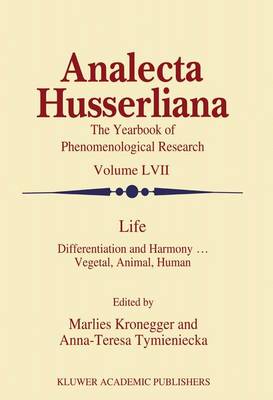In her Introduction, Tymieniecka states the core theme of the present book sharply: Is culture an excess of nature's prodigious expansiveness - an excess which might turn out to be dangerous for nature itself if it goes too far - or is culture a 'natural', congenial prolongation of nature-life? If the latter, then culture is assimilated into nature and thus would lose its claim to autonomy: its criteria would be superseded by those of nature alone. Of course, nature and culture may both still be seen as being absorbed by the inner powers of specifically human inwardness, on which view, human being, caught in its own transcendence, becomes separated radically in kind from the rest of existence and may not touch even the shadow of reality except through its own prism.
Excess, therefore, or prolongation? And on what terms? The relationship between culture and nature in its technical phase demands a new elucidation. Here this is pursued by excavating the root significance of the 'multiple rationalities' of life. In contrast to Husserl, who differentiated living types according to their degree of participation in the world, the phenomenology of life disentangles living types from within the ontopoietic web of life itself. The human creative act reveals itself as the Great Divide of the Logos of Life - a divide that does not separate but harmonizes, thus dispelling both naturalistic and spiritualistic reductionism.
- ISBN13 9780792348870
- Publish Date 31 July 1998
- Publish Status Active
- Publish Country NL
- Imprint Springer
- Edition 1998 ed.
- Format Hardcover
- Pages 411
- Language English
